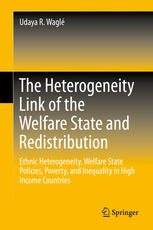

Most ebook files are in PDF format, so you can easily read them using various software such as Foxit Reader or directly on the Google Chrome browser.
Some ebook files are released by publishers in other formats such as .awz, .mobi, .epub, .fb2, etc. You may need to install specific software to read these formats on mobile/PC, such as Calibre.
Please read the tutorial at this link: https://ebookbell.com/faq
We offer FREE conversion to the popular formats you request; however, this may take some time. Therefore, right after payment, please email us, and we will try to provide the service as quickly as possible.
For some exceptional file formats or broken links (if any), please refrain from opening any disputes. Instead, email us first, and we will try to assist within a maximum of 6 hours.
EbookBell Team

5.0
20 reviewsThis book situates ethnic heterogeneity in the larger discussion of the welfare state and its redistributive outcomes, poverty and inequality. By using comprehensive, longitudinal data covering 1980 to 2010 from 17 high income countries, this analysis helps achieve a major milestone in comparative welfare state research both conceptually and methodologically. Conceptually, it elevates the relevance of growing ethnic heterogeneity in thinking about how politics and economics of the welfare state operate, collectively impacting the magnitudes of poverty and inequality. Methodologically, the analysis conducted in this book provides broader empirical tests for the many propositions and discourses found in the literature based largely on anecdotal evidence, case studies, and unjustifiably limited quantitative data. The innovative oeprationalization of the multidimensional character of both welfare state policies and ethnic heterogeneity help broaden the analytical frameworks of comparative welfare state research.
The outcome is a major advance in the way we understand the causes and redistributive consequences of the welfare state, in which ethno-racial, religious, and especially immigration heterogeneity can play a crucial role. A thorough and insightful analysis presented in this book helps students, researchers, and policymakers better understand the ethnic heterogeneity connections of the welfare state and redistribution, together with a comparative perspective of the changing faces of ethnic heterogeneity, welfare state policies, and poverty and inequality in high income countries.